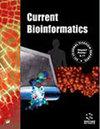药物再利用的生物信息学观点
IF 2.9
3区 生物学
Q3 BIOCHEMICAL RESEARCH METHODS
引用次数: 0
摘要
摘要:不同的疾病可以用不同的治疗剂治疗。药物发现的目的是为现有和新出现的疾病找到潜在的分子。然而,开发成本增加、多药专利到期导致的仿制药竞争、保守监管政策增加、突破性创新不足等因素影响了新药开发和制药行业的学习效率。药物再利用是为已经批准、退出使用、废弃和实验性药物寻找新的治疗应用的过程。药物再利用是另一种方法,可以部分克服与药物发现有关的障碍,因此似乎是一种明智的尝试。然而,药物再利用不是一个标准的监管过程,导致管理方面的担忧和问题。药物再利用还需要昂贵、高风险的临床试验来确定药物的安全性和有效性。生物信息学领域的最新创新可以通过识别现有药物的新靶点以及候选药物的筛选和改进来加速新药再利用研究。基因组学、表观遗传学、染色体结构、转录组学、蛋白质组学和代谢组学等领域的综合高通量数据的最新进展也可能有助于理解药物-靶标相互作用的分子机制。本综述描述了药物再利用领域的现状,以及各种生物信息学工具在现有药物新靶点识别中的应用。本文章由计算机程序翻译,如有差异,请以英文原文为准。
Bioinformatics Perspective of Drug Repurposing
Abstract: Different diseases can be treated with various therapeutic agents. Drug discovery aims to find potential molecules for existing and emerging diseases. However, factors, such as increasing development cost, generic competition due to the patent expiry of several drugs, increase in conservative regulatory policies, and insufficient breakthrough innovations impairs the development of new drugs and the learning productivity of pharmaceutical industries. Drug repurposing is the process of finding new therapeutic applications for already approved, withdrawn from use, abandoned, and experimental drugs. Drug repurposing is another method that may partially overcome the hurdles related to drug discovery and hence appears to be a wise attempt. However, drug repurposing being not a standard regulatory process, leads to administrative concerns and problems. The drug repurposing also requires expensive, high-risk clinical trials to establish the safety and efficacy of the repurposed drug. Recent innovations in the field of bioinformatics can accelerate the new drug repurposing studies by identifying new targets of the existing drugs along with drug candidate screening and refinement. Recent advancements in the field of comprehensive high throughput data in genomics, epigenetics, chromosome architecture, transcriptomic, proteomics, and metabolomics may also contribute to the understanding of molecular mechanisms involved in drug-target interaction. The present review describes the current scenario in the field of drug repurposing along with the application of various bioinformatic tools for the identification of new targets for the existing drug.
求助全文
通过发布文献求助,成功后即可免费获取论文全文。
去求助
来源期刊

Current Bioinformatics
生物-生化研究方法
CiteScore
6.60
自引率
2.50%
发文量
77
审稿时长
>12 weeks
期刊介绍:
Current Bioinformatics aims to publish all the latest and outstanding developments in bioinformatics. Each issue contains a series of timely, in-depth/mini-reviews, research papers and guest edited thematic issues written by leaders in the field, covering a wide range of the integration of biology with computer and information science.
The journal focuses on advances in computational molecular/structural biology, encompassing areas such as computing in biomedicine and genomics, computational proteomics and systems biology, and metabolic pathway engineering. Developments in these fields have direct implications on key issues related to health care, medicine, genetic disorders, development of agricultural products, renewable energy, environmental protection, etc.
 求助内容:
求助内容: 应助结果提醒方式:
应助结果提醒方式:


